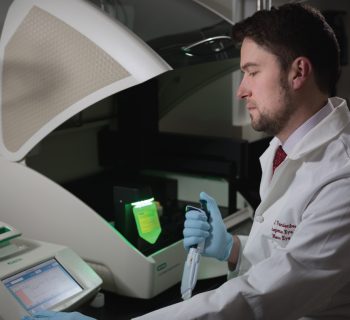
Like all good ideas, Odylia was born out of necessity. One of our founders, Scott Dorfman, is the father of two children with Usher syndrome, specifically a mutation on the USH1C gene. This autosomal recessive disease causes profound deafness at birth, vestibular disfunction and degenerative sight loss in early adolescence ultimately leading to blindness. Due to the ultra-rare nature of the mutation, there was little research being done toward treatments. So, Scott and his wife formed and funded Usher 2020 Foundation, a non-profit dedicated to finding treatments to stop the loss of vision due to Usher syndrome.
After a few years and several million dollars, one the sciences funded by Usher 2020 resulted in a solid proof-of-concept treatment that appeared to slow the loss of sight caused by the USH1C mutation. Armed with the data, Usher 2020 hired a regulatory consultation firm and set a strategic plan for a path to the clinic. Two years later, after an exhaustive search to find a commercial sponsor, it became apparent that this possibly sight-saving treatment would be “shelved” due to the low prevalence of patients and lack of commercial viability.
During this same time period, Luk Vandenberghe at Harvard Medical School, who was also conducting research of a genetic therapy funded by Usher 2020, began discussions with his colleague, Eric Pierce, about the challenges of bringing these types of therapies to patients with rare retinal disorders. At a meeting regarding his research, Scott and Luk discussed their concerns and the seeds for Odylia were planted. Conversations began as how to best address the ways in which science can be moved from the lab to the clinic for all rare Inherited Retinal Disease.

Partnering together, founders Scott Dorfman, Luk Vandenberghe and Eric Pierce, created the framework for a non-profit biotech company whose sole mission is to move rare disease with no commercial application from the lab into the clinic. Generously funded by Massachusetts Eye & Ear (MEEI) and Usher 2020 Foundation, Odylia Therapeutics became a reality in 2017 with the goal of facilitating treatments for low prevalence retinal disease with proof-of-concept science to Phase I/II/III clinical trials.


